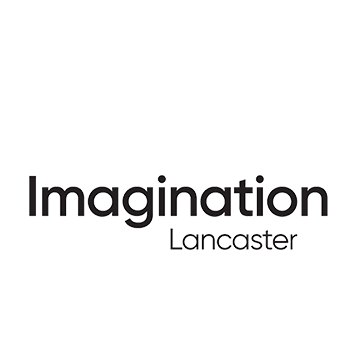A symposium focusing on design for equitable climate action.
A collaboration between ImaginationLancaster and Future Observatory.
Climate change affects everyone but not everyone is able to take effective action against the climate crisis. With systemic change slow, and the public encouraged to shoulder individual responsibility, the majority are faced with an unrealistic burden. How can design create accessible opportunities to engage with the climate crisis? How can design work for the benefit of both our community and climate? This symposium explores pathways to equitable climate action through design-led community, research and environmental projects, across four themes of repair, adapt, collaborate and transition.
“Human-induced climate change is the cause of dangerous and widespread disruption to nature and affects the lives of billions of people around the world” (IPCC report, Feb 2022). Urgent action is required on local, national and global scales and we know that society has a desire to combat this crisis. However, some routes to climate action, such as buying organic produce, investing in electric vehicles or installing expensive home insulation, are not accessible to all. We also face increasingly complex challenges in a post-pandemic society with a cost of living crisis and food and fuel poverty colliding with “and sometimes directly impeding” climate policy.
So how might design and design research help create inclusive, collective opportunities and tangible pathways to change, where every individual can access and contribute towards a collective good? Taking eight case studies from Lancashire, London, Birmingham and Bristol – spanning e-waste and repair, community housing and collective action – and inviting responses to those case studies, we ask how we might respond equitably to the climate crisis.
This symposium is a collaboration between ImaginationLancaster – a design-led research lab at Lancaster University and Future Observatory – a national programme for design research supporting the UK’s response to the climate crisis at The Design Museum.
Speakers include
- Akil Scafe-Smith, Co-founder of RESOLVE Collective
- Amahra Spence, Co-founder and Creative Director of MAIA
- Cher Potter, Curatorial Director of Future Observatory at the Design Museum
- Danielle Purkiss, Research Fellow at the UCL Plastic Waste Innovation Hub and Institute of Making
- Immy Kaur, Co Founder and Director of CIVIC SQUARE
- Irtiza Nasar, Senior Lecturer at University of the Arts London’s Creative Computing Institute
- Jo Bambrough, Co Founder of Good Things Collective
- Professor Jennie Popay, Director of Lancaster University’s Centre for Health Inequalities Research
- Justin McGuirk, Director of Future Observatory and Chief Curator of the Design Museum
- Laurie Peake, Director of Super Slow Way
- Mark Davies, Chief Executive, Lancaster City Council
- Melissa Mean, Director of We Can Make
- Dr Mike Stead, Principal Investigator of ImaginationLancaster’s The Repair Shop 2049
- Professor Nick Dunn, Executive Director of ImaginationLancaster and Chair of Urban Design at Lancaster University
- Dr Serena Pollastri, Principal Investigator of Lancaster University’s Morecambe Bay Timescapes
Full programme to be published in the lead up to the event.
Who is this event for?
Academics, researchers and students – we will be presenting a range of the latest design research around climate change and community.
Public sector, community and voluntary organisations – this is a chance to shape the debate around how we include all of our society in taking climate action.
People who live in Lancaster and Morecambe district – we will be discussing issues that affect you and your future.
Anyone concerned with the climate crisis and how we can work together to address this.
Venue: LICA Building, Lancaster University, Bailrigg, Lancaster LA1 4YW.
Please note that due to high demand the venue for the symposium has moved to LICA Building at Lancaster University – not Lancaster House Hotel as previously advertised.
Tickets are free with refreshments and lunch included.
This symposium is funded by Research England and the Arts and Humanities Research Council, which are both part of UK Research and Innovation.
Register your place on eventbrite.
